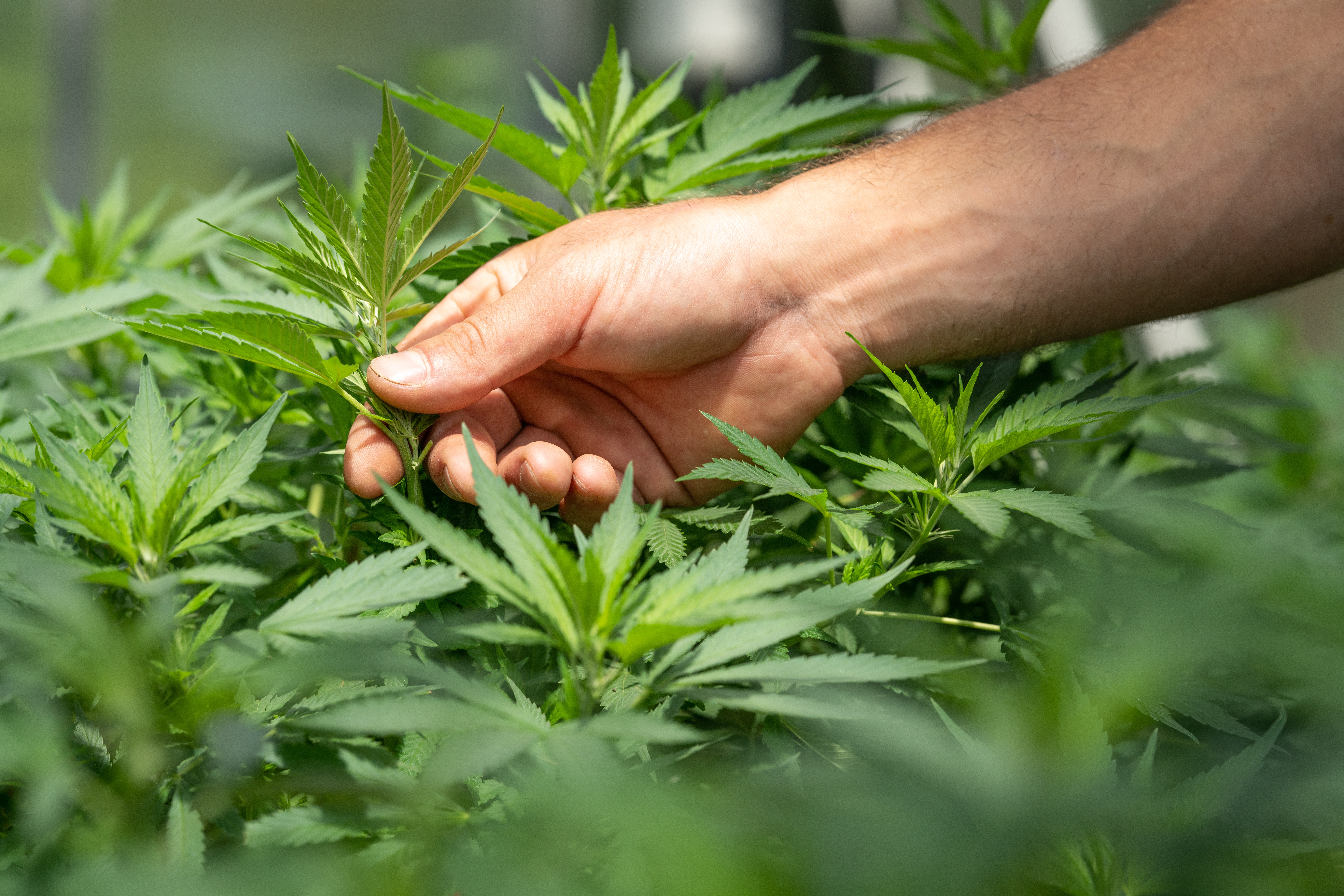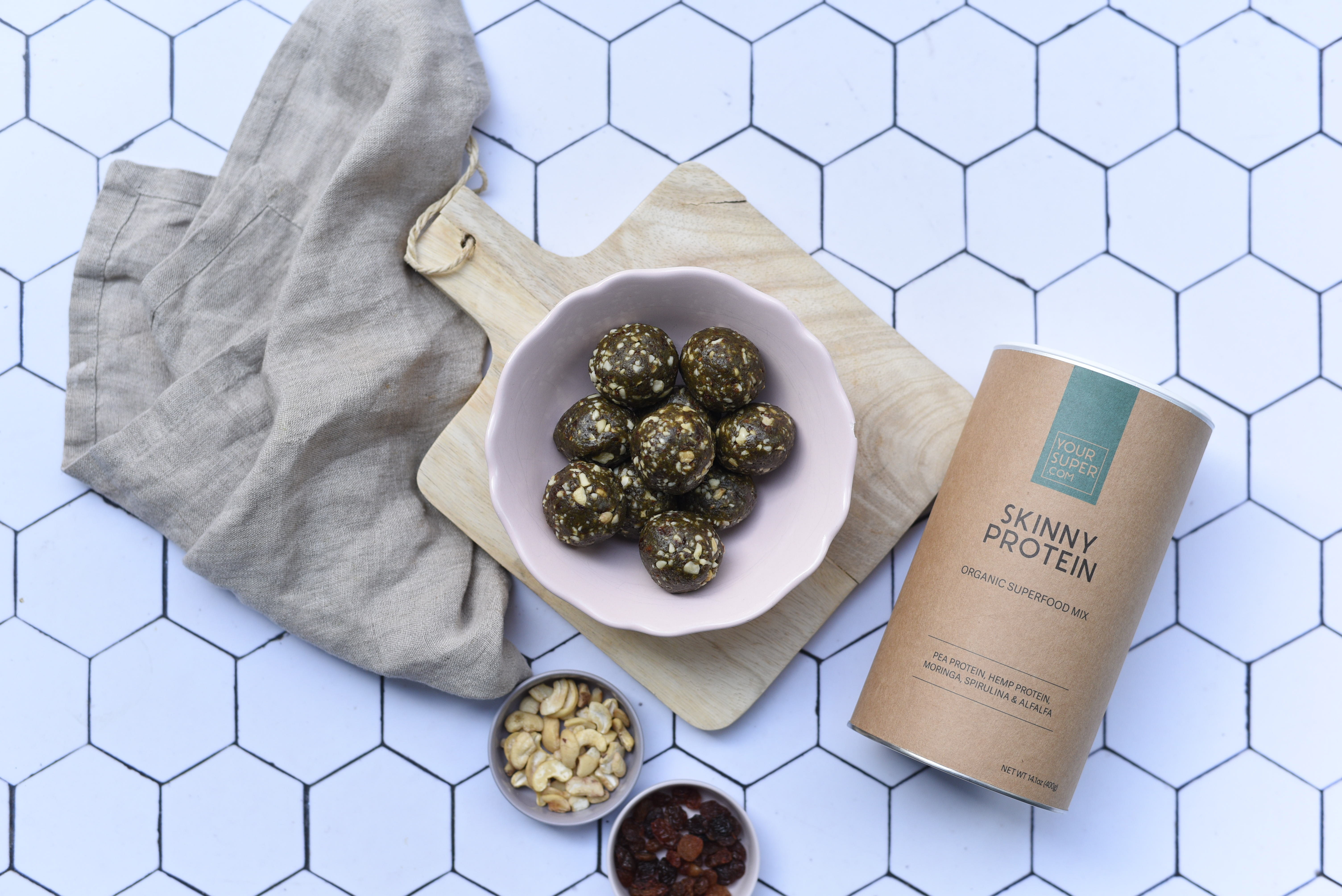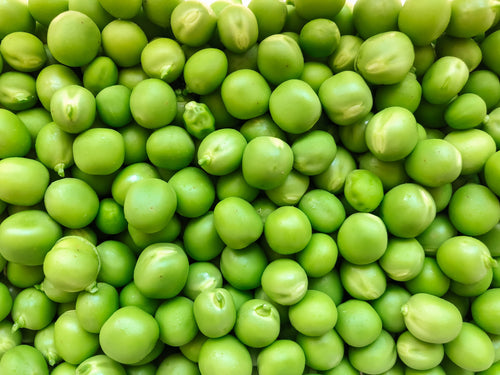Between the legalisation of marijuana for recreational use and CBD use on the rise, hemp is back in the pot-light...umm, spotlight.
Unfortunately, there’s a lot of misinformation and confusion about hemp — especially hemp protein powder. Is hemp protein powder safe to consume? Will it get you high? And is there any health benefits when it comes to hemp protein?
Find out why it’s hemp to be squared as we clear the smoke on hemp.
What is hemp?
Hemp comes from the plant Cannabis sativa. It’s typically harvested for its fiber and seeds.
While there’s been a newfound interest in this controversial ingredient, hemp actually has a long history. Humans have been cultivating (1) and using hemp for medicinal purposes for thousands of years — dating back as far as 10,000 B.C.
At one point, hemp was grown in the United States — George Washington was a hemp farmer (2)! But after World War II, farmers became discouraged (3) from growing it due to misplaced fears that hemp was the same as marijuana.
Hemp vs Marijuana: what's the difference?
While hemp and marijuana come from the cannabis family (they actually come from different breeds of the Cannabis sativa plant), but that’s about all they have in common.
Compared to its high-inducing cousins, the amount of THC (the psychoactive compound in marijuana) in hemp is minimal. Hemp typically contains less than 0.3% THC while marijuana contains about 5-10% percent or more.
That means hemp consumption is completely safe, healthy and legal.
But what hemp lacks in psychoactive compounds, it makes up for with its HIGH nutrient content!
Hemp protein powder: a nutritional overview
Before it becomes a powder, hemp actually comes from hemp seeds — which are incredibly nutritious. (Fun fact: hemp seeds are technically a nut!)
Also known as hemp hearts, hemp seeds contain over 30% fat. But don’t worry, it’s the good kind of fat!
Hemp seeds have the ideal 3:1 balance of omega-6 (linolenic acid) fatty acids vs. omega-3 (alpha-linolenic acid) fatty acids. These two fatty acids are known as “essential fatty acids” (4) — the body cannot make them, so we must get them from food.
It also contains gamma linolenic acid (GLA), making hemp one of the few sources of this hard-to-get omega-6 fatty acid.
Hemp seeds are also packed with important micronutrients (5), such as vitamin E, fiber, potassium, magnesium, calcium, iron and zinc.

5 hemp protein benefits
1. It's a complete protein
Hemp protein powder is a high-quality plant-based protein that contains 20 amino acids — the building blocks of protein. Protein is crucial for developing, growing and maintaining muscles, tissues and vital organs. It also helps boost metabolism and increases fat-burning.
Like quinoa, hemp is a complete protein, meaning it contains all 9 essential aminos acids that you can only get from food. This is rare for a plant-based protein since most lack the amino acid lysine.
A 2004 study published in “Euphytica” found the amino acid profile of hemp protein similar to two other high-quality protein sources: egg whites and soy (6).
Hemp protein is also easy to digest — up to 98% is digestible (7). This means the body can use almost all of the amino acids in hemp protein powder for important bodily functions, such as repair and maintenance.
2. It may help build & repair muscles
In addition to being a complete protein, hemp protein also contains branched chain amino acids (BCAAs).
Of the nine essential amino acids, leucine, isoleucine and valine make up the three BCAAs. Hemp protein contains 6.8% leucine, 4.5% isoleucine and 5.6% valine (8).
Research has shown BCAAs can stimulate muscle protein synthesis or muscle growth (9) and speed up (10) post-workout recovery by reducing muscle soreness (11).
3. It may reduce your risk of heart disease
Heart disease is the #1 killer in the world. But you may protect yourself (and your heart) by eating more heart healthy foods, such as hemp protein powder!
As we mentioned before, hemp seeds contain the essential fatty acids: omega-6 and omega-3. Omega-6s are considered pro-inflammatory while omega-3s are anti-inflammatory.
When it comes to omega-6 and omega-3 in the standard diet, it’s typically unbalanced — a ratio of 16:1. Scientists (12) believe a diet high in omega-6 and low in omega-3 increases inflammation in the body (13). Why does this matter? Because a majority of diseases, including heart disease, can be linked to chronic inflammation (14).
Consuming foods with lower omega-6 to omega-3 ratios, such as hemp seeds, can help correct the imbalance while reducing inflammation in the body and improving heart health (15).
Hemp seeds also contain high amounts of arginine — an amino acid that produces nitric oxide. Nitric oxide signals the arteries to relax, which promotes normal blood pressure and reduces your risk of heart disease (16).
4. It may improve digestion & cleanse the colon
Dietary is essential to a healthy diet, as well as gut health and digestion. Whole hemp seeds contain 80% soluble fiber and 20% insoluble fiber (17).
Soluble fiber slows down digestion by attracting water to create a gel-like substance in your gut. In addition to feeding the good bacteria in your gut, soluble fiber binds to substances like cholesterol and sugar and prevents or slows their absorption into the blood (18). This helps prevent blood sugar spikes and regulates cholesterol levels.
Insoluble fiber is what’s commonly referred to as “roughage” — it doesn’t dissolve in water. It essentially adds bulk to your stool and helps keep you regular by preventing constipation.
Due to the rich fiber content found in hemp protein powder, it naturally cleanses the colon by reducing constipation and removing toxins from the body. (The digestive system is one of your body’s natural detoxification systems!)
This is exactly why the hemp protein is incorporated into the 5-Day Detox.
5. It may help fight sugar cravings
Unlike pot, which can cause the munchies, hemp has the opposite effect!
Compared to soy or rice protein, which are highly refined and contain little fiber, hemp protein is rich in dietary fiber.
Fiber, as you know, can help you regulate your blood glucose levels. But it can also help you feel fuller longer. This means you won’t suffer from energy crashes and go looking for sweets.

How to add hemp protein powder to your diet
Hemp protein powder is brownish-green in color and has a taste that can be described as earthy, nutty or grassy. And it can easily be added to your pre- or post-workout shake.
Hemp protein powder is one of the 5 ingredients in the Skinny Protein mix.
What makes Your Super’s hemp protein powder different?
Hemp seeds are primarily sourced from Europe or China for the EU market and Canada for the US market. They all taste different and have different nutritional value.
When hemp seeds from China are processed in Europe, the origin on the packaging will no longer say China — it will say EU, making it hard to trace.
We source our hemp seeds from Germany, when it’s been organically grown for over 20 years. Because hemp protein has a shelf life of 12 months, we buy our hemp seeds directly from production, which means they’re very fresh.
Like all of our superfood powders, we test our hemp protein powder for glyphosate, pesticides, heavy metals.It’s also certified organic by the USDA and the European Union, as well as Non-GMO verified.
The Skinny Protein mix also includes pea protein, moringa, spirulina and alfalfa. Not only will you get two high-quality, plant-based protein, but you'll also sneak more greens easily in your daily diet.
It also doesn’t include fillers or sugars and they’re low in carbohydrates, making this mix the perfect addition to your fitness routine! Try finding that in other vegan protein powders!
Sources
(1) https://www.psychologytoday.com/us/blog/the-teenage-mind/201105/history-cannabis-in-ancient-china
(2) https://www.mountvernon.org/george-washington/farming/washingtons-crops/george-washington-grew-hemp/
(3) https://www.forbes.com/sites/ashoka/2013/05/29/industrial-hemp-a-win-win-for-the-economy-and-the-environment/#304aea55289b
(4) https://www.ncbi.nlm.nih.gov/pubmed/22435414
(5) https://link.springer.com/article/10.1007%2Fs10681-004-4811-6
(6) https://link.springer.com/article/10.1007%2Fs10681-004-4811-6
(7) https://www.ncbi.nlm.nih.gov/pubmed/20977230
(8) https://www.veganproteinlab.com/hemp-protein-amino-acid-profile
(9) https://www.ncbi.nlm.nih.gov/pubmed/16424142
(10) https://www.ncbi.nlm.nih.gov/pmc/articles/PMC4241904/
(11) https://www.ncbi.nlm.nih.gov/pubmed/22569039
(12) https://www.sciencedirect.com/science/article/abs/pii/S0753332206002435
(13) https://www.ncbi.nlm.nih.gov/pubmed/19022225
(14) https://www.ncbi.nlm.nih.gov/pmc/articles/PMC3492709/
(15) https://www.ncbi.nlm.nih.gov/pubmed/20409317
(16) https://www.ncbi.nlm.nih.gov/pubmed/21968645
(17) https://link.springer.com/article/10.1007%2Fs10681-004-4811-6
(18) https://www.health.com/nutrition/types-of-fiber





